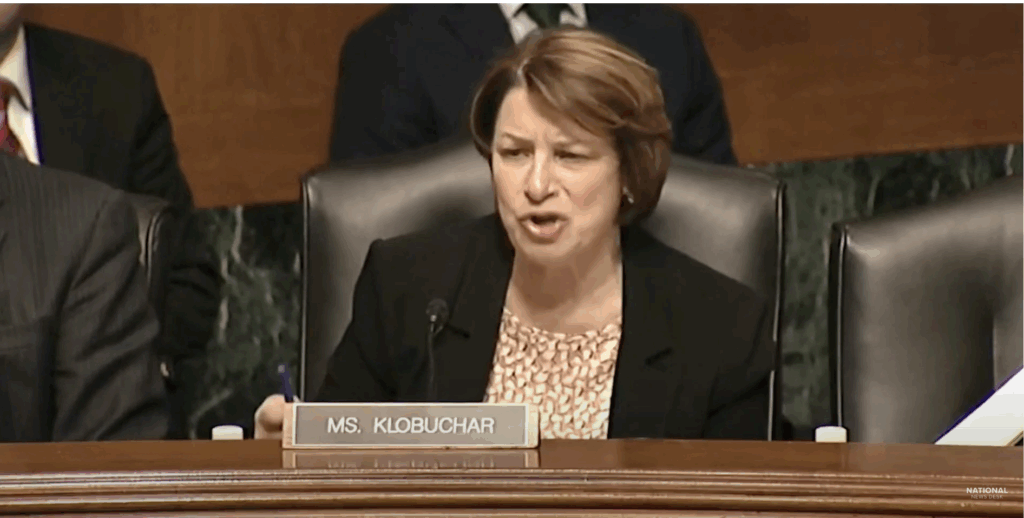Sen. Amy Klobuchar, D-Minn., recently addressed a controversy surrounding a deepfake video that falsely attributed vulgar comments to her regarding actress Sydney Sweeney. In a New York Times opinion piece, Klobuchar clarified that she never made the statements depicted in the AI-generated video, which has gone viral and sparked discussions about the implications of deepfake technology.
The video, which features a doctored version of Klobuchar at a Senate committee hearing, satirically suggests that Democrats should also have representation in advertising, humorously claiming that they want to showcase ‘ugly, fat bitches’ in their campaigns. Klobuchar condemned the video as a hoax and called for Congress to enact laws banning such AI-generated content, which she described as ‘vulgar and absurd.’
Critics argue that Klobuchar’s push for legislation against deepfakes could infringe on free speech rights. Ryan Bangert, senior vice president for strategic initiatives at Alliance Defending Freedom (ADF), noted that the intent of political campaigns is often to challenge opponents’ electoral prospects, making such laws problematic.
Hawaii’s legislature passed a bill last year that imposes penalties for posting digitally modified content that could harm a candidate’s reputation. Bangert criticized this law as an attempt to outlaw political discourse, stating, ‘Isn’t the whole point of a campaign to harm the electoral prospects of a candidate? It’s outlawing politics, basically.’
The ADF is currently involved in a lawsuit against the Hawaii law, arguing that it violates the First Amendment by restricting parody and satire. Similar concerns have arisen in California, where a law was enacted following the release of an AI-generated video featuring then-Vice President Kamala Harris.
A Federal District Court in California previously issued a preliminary injunction against the law, emphasizing the importance of protecting parody and satire as part of free speech. ADF attorneys have recently made their case for upholding these rights, with a ruling expected soon.
The situation reflects broader trends in the U.S. and abroad regarding free speech. The European Union’s Digital Services Act, which imposes strict regulations on online content, has drawn criticism for potentially stifling free expression. Bangert highlighted that the Act lacks reliable protections for free speech, as it empowers content moderators to remove material deemed inappropriate.
In the United Kingdom, free speech has also faced challenges, exemplified by the case of Adam Smith-Connor, who was convicted for silently praying near an abortion clinic. ADF International is supporting his appeal, emphasizing the ongoing struggle for free speech rights.
Klobuchar’s call for legislation against deepfakes has raised alarms among free speech advocates, who argue that such measures could lead to censorship and limit political satire. Bangert remarked that politicians like Klobuchar and California Governor Gavin Newsom may be more concerned about criticism than protecting citizens from harmful content.
As the debate over free speech and deepfake technology continues, advocates warn that the cost of protecting individual liberties must be weighed against the potential consequences of restricting political expression.
READ ICE Arrests Convicted Criminals in Nationwide Operation



